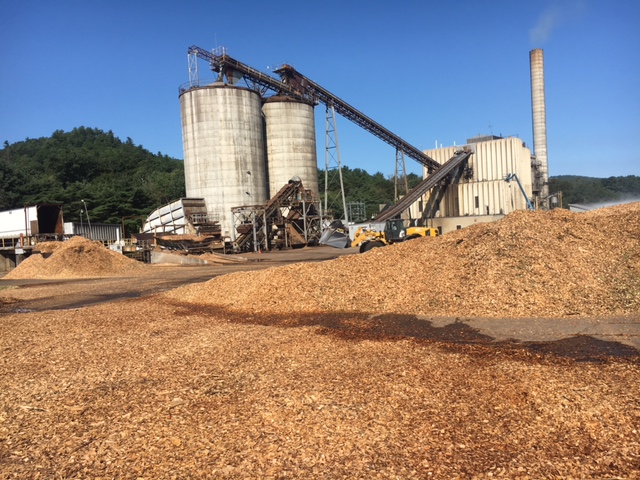By Michael O’Leary
The September 4, 2018 Toxic Action Center press release on SB 365 and biomass power is misleading, and, as the asset manager of the Bridgewater Power Company’s biomass plant since 1987, I completely disagree with its conclusions. (see release below)
One need look no further than the August 2018 letter from Jane A. Difley, the president of the Society for the Protection of New Hampshire Forests to see how that press release lacks any understanding of the benefits to the environment and good forests practices brought about by the biomass plants.
The Forest Society letter encourages lawmakers to vote to override the SB 365 veto, and states “…forests support our quality of life; markets for forest products support sustainable forestry, which in turn helps make the natural systems within forests resilient. Decapitating existing energy markets for low-grade wood will not advance a century of progress in restoring the resilience of New Hampshire forests.”
Biomass plants are carbon neutral. The biomass used in our plant and the other 5 New Hampshire independent biomass plants is harvested low-grade wood from our well-managed forests. Our harvests promote the growth of better timber, clean air, create wildlife habitat, and provide for recreational activities.
The by-product of biomass electricity production is wood ash, which is non-toxic and used by New Hampshire farmers, including organic farmers, as a soil amendment. The City of Claremont also uses the wood ash to deodorize its wastewater treatment facility biosolids. Without that ash, the Claremont city public works department said its costs would triple.
A 2017 study by the University of Illinois Department of Agricultural and Consumer Economics examined the carbon intensity of a 50 MW New Hampshire biomass power plant and compared it to a similar sized natural gas power plant. The study concluded that use of the biomass plant results in immediate carbon savings of 115%, with 98% carbon savings over 100 years compared to the natural gas plant.
The press release also fails to inform that SB 365 has nothing to do with air emissions from the renewable power plants covered by that bill. Nothing in SB 365 changes the allowed emission levels. These plants have operated for at least 30 years under the terms of federal and state air emissions permits. These permits and EPA consider the plants to be “minor sources”. The biomass power plants also operate under the terms of the state’s renewable power law. This law requires those plants to reduce air emissions to levels below the levels allowed by federal and state law and permits. This is a further level of protection for public health and safety.
The New Hampshire Department of Environmental Services recognizes the environmental benefits of biomass plants. Its Climate Action Plan, adopted in 2009, among other points calls for harnessing forest-sourced biomass in “production of electricity (and) heating residential and public buildings… (while employing) sustainable forest management principles.”
The press release claims SB 365 will cost ratepayers but fails to report that a former Northeast Utilities official responsible for electricity sales for that company testified in the house and senate committee hearings on SB 365 that the loss of the 100 MWs of biomass if the veto is not overridden will cause a permanent $17 million annual increase in capacity costs to New Hampshire ratepayers. This is the result under the regional grid’s capacity auction process—less supply committed in the auction increases the price. The expert confirmed his testimony’s conclusion with the regional grid organization. A permanent annual $17 million increase in capacity costs to New Hampshire ratepayers eliminates any “savings” from vetoing SB 365.
We need electricity. Criticizing one form of production without comparing the issues from realistic options misleads the public. Would Toxic Action Center prefer biomass to be replaced with fracked gas from other states with the need for more pipelines, or imports of Canadian hydro over transmission lines running overhead in our North Country?
Biomass plants are a great environmental story. They procure their fuel locally, improve the forest, allow forests to remain forest land, produce renewable power, have air emissions lower than that allowed by federal law, and the ash by-product is returned to the land to improve the soil for the future. Can any other power resource produce those benefits?
I urge our representatives to override the SB 365 veto on September 13 and preserve these benefits and avoid the permanent annual $17 million rate charges.
Views expressed in columns and opinion pieces are those of the author and do not necessarily reflect those of InDepthNH.org.
Opinion: NH Residents Would Pay More If SB 365 Veto Overturned





